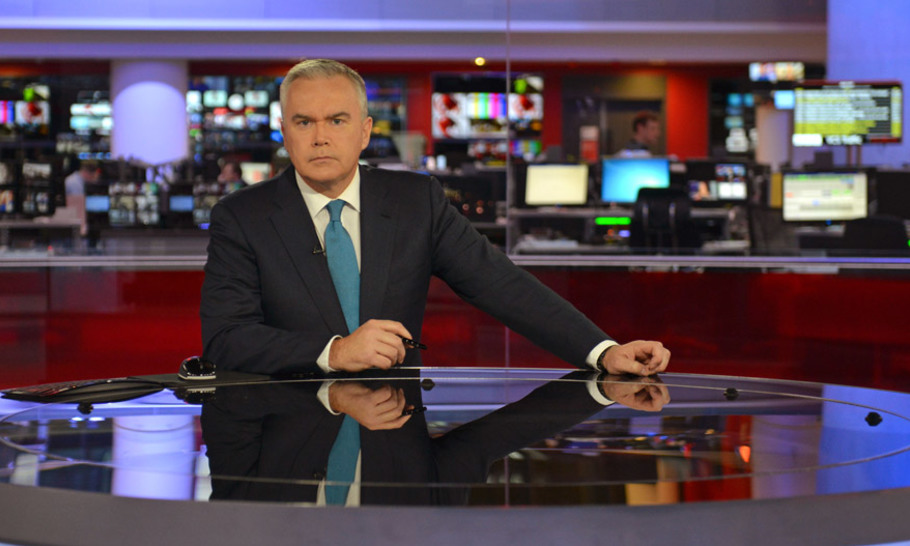Britain’s future depends on this election. The BBC must take it more seriously

Even before the election campaign has officially begun, the Tories are having a torrid time of it. That, at least, is the impression that any voter would have gained from watching last night’s Ten O’Clock News on the BBC.
The bulletin led with a story about the Welsh Secretary, Alun Cairns, which was almost incomprehensible, but left us with the perception that he might have to resign over a rape case in which he had not actually been involved and the gravamen of which could not be revealed for legal reasons. The presenter, Huw Edwards, looked excited that his native Wales was suddenly a focus of attention, but most viewers will merely have been baffled.
The bulletin went on to devote inordinate attention to an unfortunate remark by Jacob Rees-Mogg about the Grenfell fire. The Leader of the Commons had clearly intended to criticise the fire service protocol, but sounded as though he was doubting the “common sense” of residents. His apology was, as Laura Kuenssberg acknowledged, swift and sincere, but the BBC dilated at length on the outrage of the victims. In the Left’s demonology, Rees-Mogg occupies a position second only to Boris Johnson. His crime is to be unashamedly rich and comfortable in his skin — or, rather, in his Savile Row suits. But this, too, was not really much of a story.
Only after the latest instalment of the dreary Trump impeachment saga, plus other items, did this meandering news bulletin get to what should have been its lead item: an interview by Katya Adler with Jean-Claude Juncker. For once, the BBC’s Brussels correspondent got the retiring President of the EU Commission to open up.
If Boris Johnson — “I like him, by the way” — is returned to office, he would get Brexit done by the time the present extension expires on January 31: “I think it will happen.” Unfortunately for the Liberal Democrats and other Remain parties, Juncker was quite clear that “this too-long story must be brought to an end”.
Then he was asked about Labour’s policy of junking the Boris deal in order to negotiate a new one, which would require yet another extension, followed by a second referendum next summer. Juncker’s reply ought to have been political dynamite: “Honestly speaking, I don’t think that this is a realistic approach.”
Here, then, was the EU Commission President rubbishing Labour’s policy on the biggest issue facing the country. Yet viewers could easily have missed it. On the BBC’s website, the key quotes are nowhere to be found, unless viewers can be bothered to replay the whole interview. Juncker’s unambiguous message simply does not fit the BBC’s narrative.
This matters. Without fair and objective coverage of the election by what is still the nation’s most powerful broadcaster, abiding by the rules that it is bound to observe during the official campaign, it will be impossible for the Conservatives to cut through the background noise that elections always generate.
One consequence of Britain inadvertently ending up with a Corbyn government are outlined today in The Times. A list of senior Labour politicians, intelligence sources and other Whitehall insiders combine to warn against the security risk that he would pose. The “Five Eyes” intelligence-sharing arrangement with the US and other allies would abruptly cease. Corbyn would first refuse to authorise the use of Trident, then almost certainly scrap it. “He doesn’t understand deterrence,” says Admiral Lord West, the former head of the Royal Navy. Seumas Milne and Andrew Murray, Corbyn’s advisers, are so dangerous that they would be refused security clearance by MI5. Lord Hutton, the former Defence Secretary, states bluntly that a Corbyn government “would make the country less safe. It’s impossible to look at it with anything other than extreme alarm.” And Jack Straw, the former Foreign Secretary and Home Secretary, warns that “Mr Corbyn may have a deep-seated reluctance ever to approve of British military action, short of an enemy invasion”.
Could we imagine the BBC running this story? Given the mindset that prevails in the Corporation, they would be more likely to dismiss such concerns as the machinations of the “deep-state”. Yet Straw specifically rejects that argument: “This would not be any ‘deep-state conspiracy’, but the human reaction of people who give their careers to keep us safe, sometimes at serious personal risk to their own lives.”
As the parties prepare for more than a month of campaigning, we in the media need to keep our eyes on the ball. This election should not only offer a final choice on Brexit, but decide whether the voters are prepared to entrust the machinery of state to people who for decades have consistently sided with our enemies. This is not a political game. This election is literally a matter of life and death.





